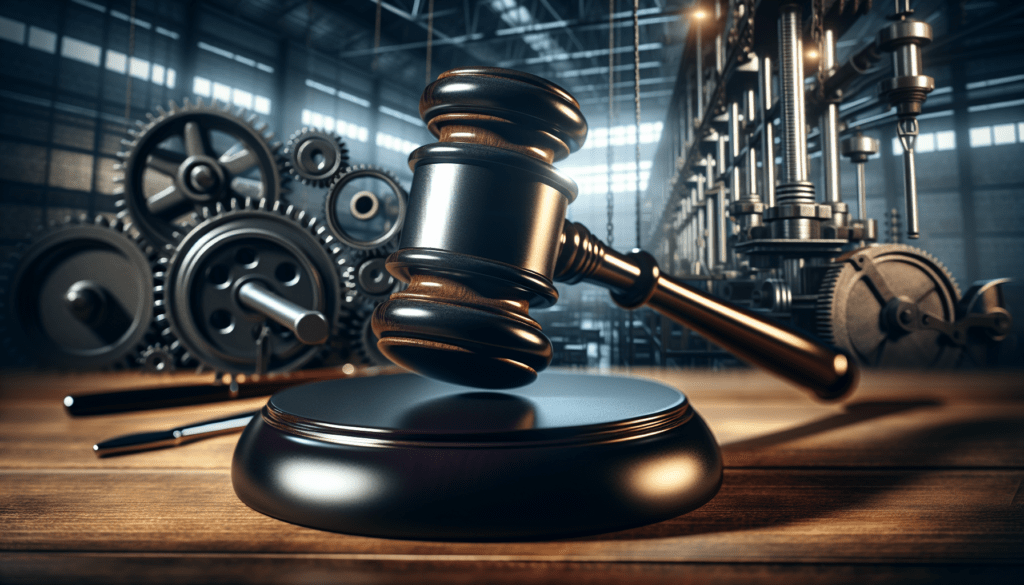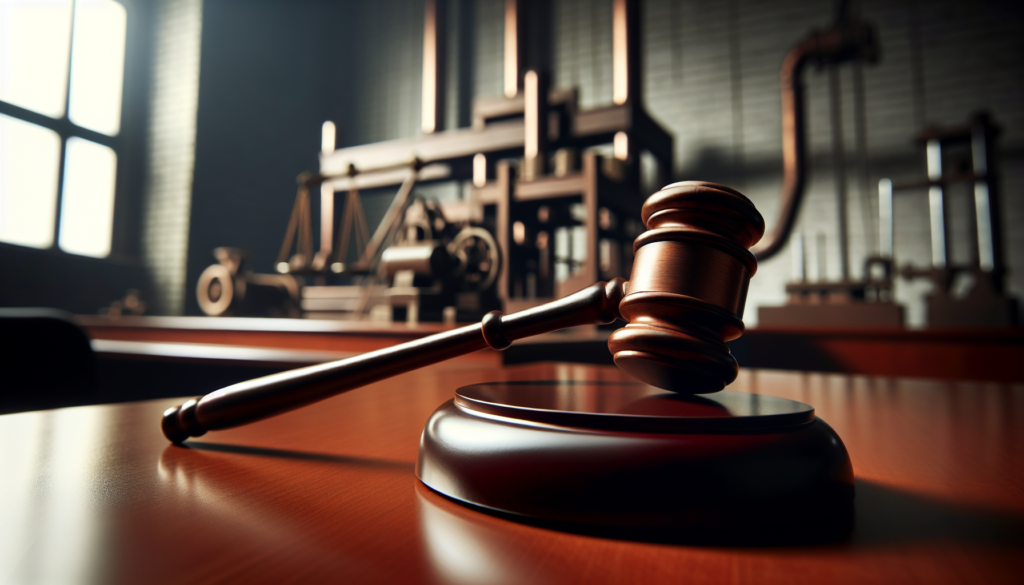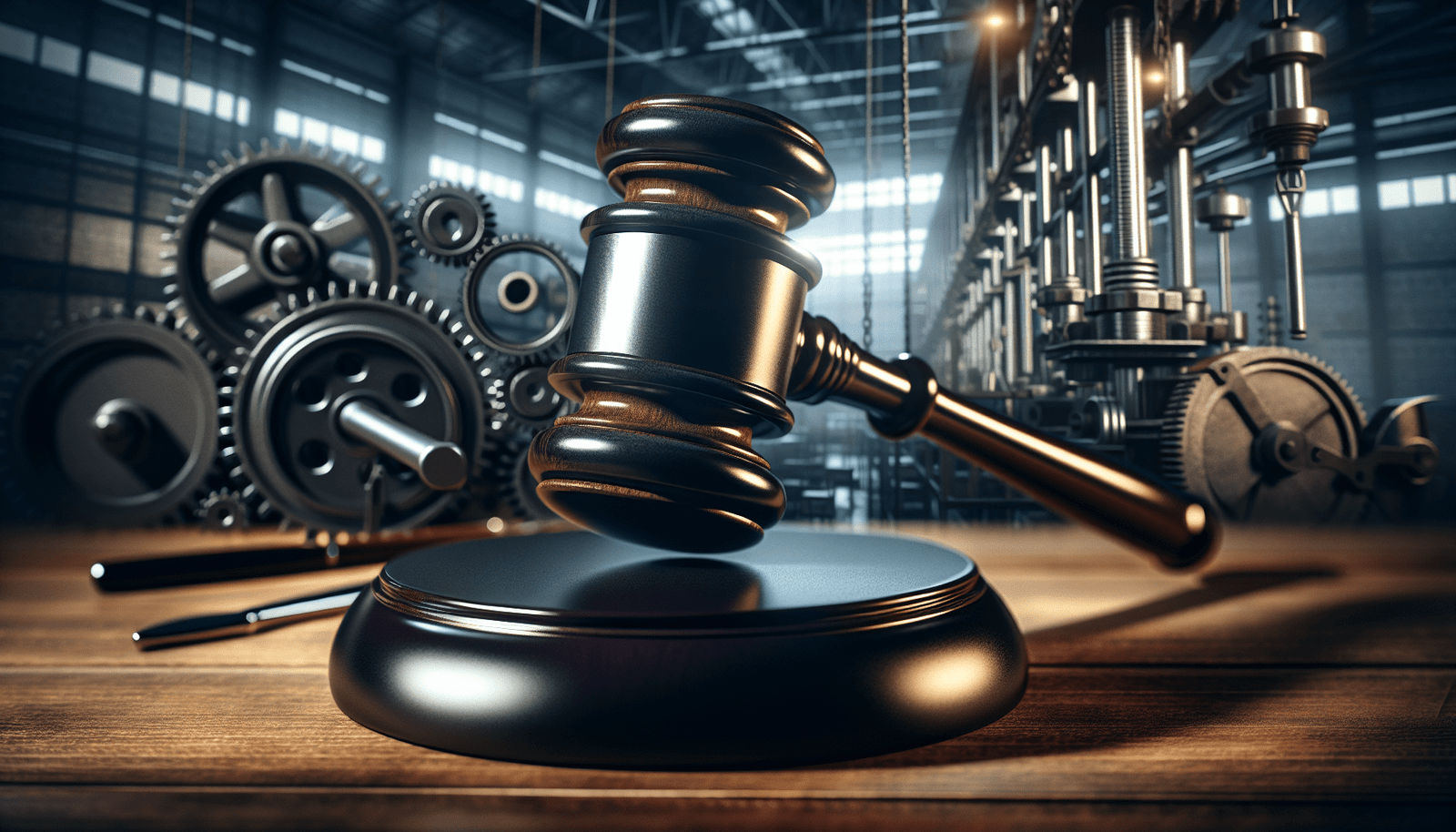Have you ever wondered what steps to take after experiencing an industrial injury? Navigating through the aftermath of such an incident can be daunting, especially when it involves legal intricacies. If you’re in Atlanta and are grappling with these challenges, you might be considering whether you need the guidance of an industrial injury lawyer. Their expertise can be indispensable as you seek justice and compensation.

Understanding Industrial Injuries
Industrial injuries occur in workplaces where physical tasks involve machinery, hazardous materials, or other risky conditions. These injuries can range from minor scrapes to life-threatening accidents, sometimes leading to long-term disability and significant financial burdens. Knowing the common types of industrial injuries might help you recognize and address them effectively in the workplace.
Common Types of Industrial Injuries
Industrial workplaces are fraught with numerous hazards, making injuries an unfortunate reality. Some common types include:
- Musculoskeletal Disorders: These are often caused by repetitive strain or improper lifting techniques, leading to chronic pain and mobility issues.
- Cut and Lacerations: Often result from improper handling of sharp tools or lack of protective gear.
- Burns: Chemical burns or those caused by electrical malfunctions can lead to severe skin damage.
- Fractures: A fall from a ladder or scaffolding may lead to broken bones.
- Respiratory Illnesses: Exposure to harmful substances can lead to ailments like asbestosis or silicosis.
Causes and Contributing Factors
Several factors contribute to industrial injuries, including:
- Lack of Training: Inadequate instruction on proper equipment use and safety protocols can increase the likelihood of accidents.
- Poor Maintenance: Faulty machinery or insufficient maintenance can lead to accidents.
- Negligent Safety Practices: Failure to follow safety guidelines can result in preventable injuries.
- Insufficient Protective Equipment: Without the proper gear, employees are more vulnerable to injury.
The Role of an Industrial Injury Lawyer
Understanding the role of an industrial injury lawyer can be crucial when you’re dealing with the aftermath of an industrial accident. Their primary goal is to assist you in navigating the complex legal landscape involved in such cases.
Why You Might Need an Industrial Injury Lawyer
Seeking the help of a lawyer specialized in industrial injuries can provide numerous benefits:
- Expert Advice: These lawyers have the expertise to advise on the merits of your case and guide you through the legal process.
- Legal Representation: They advocate on your behalf in court or during settlement negotiations to ensure you receive fair compensation.
- Navigating Workers‘ Compensation: Dealing with workers‘ compensation claims can be complicated. A lawyer can help you understand and pursue the benefits you’re entitled to.
- Addressing Employer Negligence: In cases where employer negligence is involved, an attorney will help you prove liability and seek damages.
How an Industrial Injury Lawyer Can Help in Atlanta
Atlanta, with its diverse industries, is no stranger to industrial injuries. A local lawyer can offer specific advantages:
- Knowledge of State Regulations: Familiarity with Georgia’s industrial safety laws and workers‘ compensation regulations ensures your case is handled according to local standards.
- Experience with Local Courts: Understanding how local courts operate can make a significant difference in the outcome of your case.
- Connections with Medical Experts: Local lawyers often have established relationships with medical professionals who can provide critical testimony for your case.
Navigating the Legal Process
Embarking on the legal journey after an industrial injury is challenging. Knowing what to expect can alleviate some of the anxieties associated with the process.
Initial Consultation with the Lawyer
The first step often involves an initial consultation where you discuss the details of your case with the lawyer.
- Case Evaluation: The lawyer assesses the viability of your case based on the information you provide.
- Legal Strategy: They outline potential legal strategies tailored to your situation.
- Fee Structure Explanation: Most lawyers provide a breakdown of fees upfront, often working on a contingency basis, meaning they only get paid if you win the case.
Filing a Claim
Should you decide to proceed, the next phase is filing a legal claim. Here’s what this involves:
- Documentation Gathering: Collecting evidence such as medical records, accident reports, and eyewitness accounts.
- Claim Submission: Officially filing the claim with the appropriate legal body.
- Negotiation or Litigation: Depending on the response, your lawyer may pursue a settlement or prepare for court proceedings.
Pursuing Compensation
Compensation can cover various aspects, from medical expenses to lost wages. Here’s how it typically breaks down:
| Type of Compensation | Description |
|---|---|
| Medical Expenses | Covers hospital stays, surgery, medication, rehabilitation costs, etc. |
| Lost Wages | Compensation for income lost due to inability to work. |
| Pain and Suffering | Monetary compensation for physical and mental distress resulting from the injury. |
| Disability Benefits | For cases resulting in long-term or permanent disability. |
Your Rights Under Georgia Law
Understanding your rights under Georgia law can empower you in pursuing a claim. The state provides specific protections and avenues for injured workers.
Workers‘ Compensation Benefits
Georgia’s workers‘ compensation laws offer a no-fault insurance system, meaning you can receive benefits without proving the employer’s fault. These benefits include:
- Medical Care: Coverage of reasonable and necessary treatment for work-related injuries.
- Income Benefits: Reimbursement for missed pay due to injury-induced work absence.
- Rehabilitation Support: Assistance for retraining if you cannot return to your previous job.
Statute of Limitations
Timing is crucial in industrial injury cases. Georgia imposes specific time limits:
- Reporting the Injury: You need to report the injury to your employer within 30 days.
- Filing a Claim: You must file a claim within one year of the date of the injury or the last time you received income benefits.
Proving Employer Negligence
While workers‘ compensation generally covers industrial injuries, proving employer negligence can open additional avenues for compensation:
- Breach of Duty: Demonstrating that the employer breached their duty to provide a safe work environment.
- Causation: Showing that this breach directly led to the injury.
- Damages: Proving that the injury resulted in quantifiable damages.

Choosing the Right Lawyer
Selecting the right lawyer can significantly influence your case’s outcome. Here are key considerations:
Experience and Expertise
- Track Record: Look for a lawyer with a history of successful industrial injury cases.
- Specialization: Ensure they specialize in injury and workers‘ compensation law.
- Reputation: Seek recommendations or reviews from former clients.
Communication and Availability
Effective communication is vital. Evaluate how well the lawyer:
- Listens to You: They should be attentive to your concerns and queries.
- Explains Legal Terms: They should clarify complex legal jargon.
- Accessibility: Ensure they are accessible and responsive to your needs.
Cost and Fees
Understanding the financial aspects of hiring a lawyer can prevent unexpected expenses:
- Contingency Fees: Many lawyers work on a contingency basis, taking a percentage of your compensation.
- Additional Costs: Clarify any extra charges for court fees, expert testimonies, etc.
The Emotional Aspect of Industrial Injuries
Experiencing an industrial injury is not just a physical ordeal; it can also take an emotional toll. Recognizing and addressing these aspects is vital in your recovery journey.
Coping with Stress and Anxiety
Financial pressure and physical limitations can lead to stress and anxiety. Here are some coping strategies:
- Professional Counseling: Consider seeking help from mental health professionals.
- Support Groups: Joining communities of people facing similar challenges can provide comfort and advice.
- Mindfulness Practices: Techniques such as meditation and deep breathing can help manage stress.
Maintaining Relationships
Injuries can strain personal relationships. Maintaining open communication and seeking relational guidance can mitigate these challenges.
- Open Dialogue: Regularly discuss your feelings and challenges with loved ones.
- Seek Support: Don’t hesitate to reach out to trusted friends or family for assistance.
- Therapeutic Assistance: Consider couples or family therapy to navigate relationship strains.
Fostering Resilience
Building resilience can help you face the long-term impacts of your injury more effectively. Here’s how:
- Setting Goals: Small, manageable goals can help restore a sense of control and purpose.
- Celebrating Progress: Acknowledge every milestone in your recovery journey.
- Positive Affirmations: Encourage a positive mindset with daily affirmations.
Conclusion
When faced with the daunting challenge of an industrial injury in Atlanta, understanding your options and rights is crucial. Working with an experienced industrial injury lawyer can provide the support and guidance you need to navigate the complex legal landscape. From understanding the nuances of Georgia’s laws to handling the emotional impact of an injury, the right legal support can be a cornerstone in your path to recovery and justice. With careful consideration and the right support, you can work towards a resolution that secures your future well-being.
